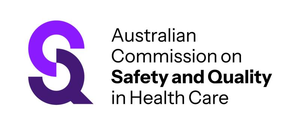The Commission is a national independent statutory authority, established under the National Health Reform Act 2011. The Commission is jointly funded by the Australian Government and state and territory governments.
Vision and mission
The Commission’s purpose is to lead improvements in the safety and quality of health care so all Australian’s receive better care, everywhere.
The Commission works in partnership with the health system to improve clinical governance, strengthen safety and quality standards, and empower patients, carers and communities.
Through leadership, collaboration and innovation, the Commission aims to reduce harm, improve health outcomes and embed a culture of safety and continuous quality improvement.
How the Commission can help
The Commission:
- Works with patients, carers, clinicians, and health services to support safe, high-quality care that improves health outcomes.
- Harnesses evidence and the patient voice, to inform the delivery of high-quality, equitable and sustainable person-centred health care.
- Provides national leadership, standards and resources to support healthcare organisations to improve safety and quality of care across Australia.
- Provides tools and information to support shared decision making and empower patients, carers and communities to actively participate in their care.
Information lines / help lines
- Call 02 9126 3600 Monday to Friday, 9am to 5pm AEST for general enquiries
Programs, apps and tools
- Partnering with consumers - Decision Support tools for patients











